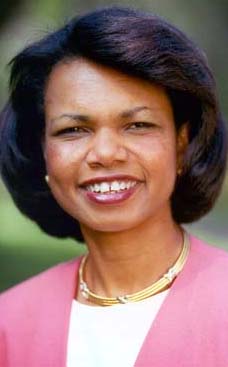
"As I went out every day to talk to people in the village, I managed to make friends and form my host family. By now, it has expanded to include a father, two mothers, three aunts, dozens of siblings — and even a few children, whom I am supposed to bring back to the United States with me when I return in October 2007."
Peace Corps Volunteer Nathalie Boittin moves into Burkina Faso
Moving Into Burkina Faso
By Nathalie Boittin | Monday, February 27, 2006
Moving into a small village in a far-away African country can be a difficult experience. Nathalie Boittin, a newly minted Peace Corps volunteer, describes her move into Burkina Faso and the journey she went on to find acceptance in the community and create a home for herself.
e-Briefing Services for Businesses
first arrived in Burkina Faso, a small land-locked country in West Africa, nearly seven months ago.
Perhaps the Peace Corps considered me to be adequately prepared for the move to village — but personally I felt woefully unready.
I came here as a Peace Corps volunteer to work in the brand-new Girls’ Education and Empowerment program, a program which is just as vague and open to interpretation as the title suggests.
I had no idea what to expect and knew nothing at all about the country, its culture or its history. This has changed radically over the course of the last seven months.
There were 51 of us who showed up, bright-eyed, bushy-tailed — and perhaps just a little terrified.
Training period
We were to go through an 11-week training period, a time which was divided between a hub town called Gourcy, where we all lived together, and various satellite villages where we lived in groups of three to six volunteers.
We received lessons in French, local languages, the Burkinabe culture, technical aspects of helping people in the village — and various other factors.
Afterwards, we were sworn in as volunteers and sent off to our official sites. In my case, I went to Borguindé, a small village of cattle farmers situated in the north of the country.
Adequately prepared?
Perhaps the Peace Corps considered me to be adequately prepared for the move to the village, but personally I felt woefully unready. It had been unsettling to go to our training village, but at least we had been in groups with other volunteers there.
My host family has expanded to include a father, two mothers, three aunts, dozens of siblings — and even a few children.
At our site of service, we are on our own. My nearest neighbor lives in the town of Djibo, 10 kilometers away, to which I bike once a week for food, telephone, etc. Many other volunteers are posted much further away from volunteer neighbors.
Moreover, I had spent most of my training studying Moore, the main language in Burkina (besides French). However, the main ethnic group in my village is Peulh — and their language is Fulfuldé, a language I had only studied for a few weeks before coming.
It seems like poor planning on Peace Corps’ part, but in a country where there are over 60 ethnicities and language groups, it’s pretty difficult to predict what language a volunteer might need.
Uncertainty
The first few days in my village were probably the toughest days of my service to date.
I felt like I didn’t know the language, I certainly didn’t know anyone in the village — and I still wasn’t sure just how I was expected to either empower or educate the girls.
Finding a place to live
I was supposed to move into a hut near the center of
The dozens of siblings I have are a protective measure: I quickly discovered that calling someone my brother meant they couldn’t propose to me.
the village, but that hut was deemed to be unsafe by Peace Corps standards (no door, no windows, a mud floor…).
Fortunately, one of the official teacher houses was empty, because the school director is married to one of the teachers, so they share a house.
Thus, while everybody else in the village was living in mud huts, I was living in a concrete palace by the school, albeit a palace with no electricity or running water, while waiting for my hut to be renovated.
Cautious first encounters
At first, I had to make an effort to get myself to leave the house each morning to go and “talk” to people in the village — a process which involved a lot of hand gestures and pointing and big smiles.
It was rather unnerving being the constant center of attention. Few people had ever interacted with a white person (or “Toubakou,” in the Fulfuldé language) for any significant amount of time. And many of the younger children had never seen a toubakou at all — and initially fled in terror whenever I came near.
Making friends
Fortunately, this changed very quickly. Living with people who only spoke Fulfuldé meant that I was forced to learn the language quickly. I soon felt comfortable enough to get some basic ideas across in my broken Fulfuldé (“I go well for water now!” “I want go market!”).
At first, I had to make an effort to get myself to leave the house each morning and go and ‘talk’ to the people in the village.
The people were incredibly friendly, welcoming me with liters of fresh milk (one of the advantages of living with cattle farmers), as well as various local dishes, which took some getting used to.
I managed to locate the few people who knew some French, and used them to teach me as much Fulfuldé as possible.
As I went out every day to talk to people in the village, I managed to make friends and form my host family. By now, it has expanded to include a father, two mothers, three aunts, dozens of siblings — and even a few children, whom I am supposed to bring back to the United States with me when I return in October 2007.
A large family
Having two mothers isn’t unusual here. It is a very Muslim community and many men take two or more wives, although my two mothers are unusual in that they are not co-wives.
The dozens of siblings I have are a protective measure: I very quickly learned how to proceed when someone was proposing to me, which happened a lot. I discovered that calling someone my brother meant they couldn’t propose to me. First cousin marriage is acceptable among Peulhs — but incest most certainly is not allowed.
As an added measure, I have also invented myself a husband in the United States, so if someone wants me for a third wife, I firmly declare that I’m taken.
Hut 4.0
Thus, after only a few weeks, I felt fairly comfortable navigating my village, as well as the market in Djibo.
I have lots of neighbors and they're generally great — although they don't quite understand the concept of privacy.
However, despite the size of the teacher house, I had a few problems with it. Mainly, it was a long way away from the villagers. Anytime I wanted to talk to a neighbor, I had to trek over — and then it was a big event. People had to pull out the nice chair and offer me something to eat.
Moreover, in case the school director gets assigned somewhere else next summer, which he dearly hopes will happen because he does not like living in a village, he and his wife will move out. Then, two new teachers will come — and one of them will likely move into my house.
So, as a preemptive measure, I really wanted to move into the renovated and improved version of the old house, or Hut 4.0. And finally, the renovations were done — and I was able to move!
Finally at home
So I now live in an actual mud hut, which has loads of charm, in a slightly spider-infested kind of way (but I'm working on the spiders). It has two rooms, one bigger room which serves as kitchen/sitting room, and a little one, which is the bedroom.
It also has a delightful private courtyard with a tree in it, and it even has a sun shelter, made out of logs and woven straw, so I'll have shade in the upcoming hot season. There is a latrine just outside my courtyard, which I don’t share with anyone.
I am living in the middle of the delegate's neighborhood. He is the man who serves as village representative to the government, so I certainly can't complain about the lack of neighbors anymore.
Very friendly neighbors
In fact, I have lots of neighbors, and they're generally great — although they don't quite understand the concept of privacy.
In a country where there are over 60 ethnicities and language groups, it’s difficult to predict what language a volunteer might need.
They also go a little overboard feeding me. Giving food to others is an integral part of hospitality here, but it can get to be a bit much — especially since they aren’t exactly feeding me Caesar salads.
They bring a giant bowl of tô (a kind of thick millet dough served with various sauces, that people here eat morning, noon, and night) to me every single evening — and occasionally at noon, too.
For the first few days after the move, I found myself eating what I could, and then waiting till the dead of night to get rid of what I couldn't eat, so I could bring back a nice clean bowl. Then I decided that was wasteful and just ate some of the tô — and took the rest back to give to the kids.
Getting to work
Incidentally, the children are no longer afraid of me. They are much more likely to follow me around, run after me when I bike over to the water pump to get my water every day, or offer to get the water for me, than to run away.
Not only that, but now that I have more or less navigated the difficult period of settling in, getting used to people and language, and getting them to accept me as their daughter/sister/niece/non-wife, I can actually start getting some work done, which leads me to a whole new challenge and adventure — figuring out the whole girls’ empowerment thing!














